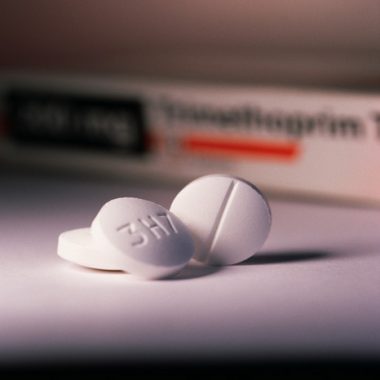GPs face new drive to cut inappropriate antibiotic use for urinary tract infections

GPs are facing a clampdown on use of trimethoprim for treatment of urinary tract infections, under new targets for commissioners set out by NHS chiefs.
The targets for CCGs – set out in a new two-year ‘Quality Premium’ scheme starting next April – are likely to put GPs under pressure to choose nitrofurantoin over trimethoprim in younger patients, and cutting down on overall use of trimethoprim in elderly people.
They will also see CCGs rewarded if GPs keep driving down their overall use of antibiotics.
It comes after public health chiefs pinned recent rises in E. coli bacteremia, mainly in older people, on inappropriate antibiotic use leading to repeat infections.
GP leaders warn that trimethoprim is more convenient and, as a result, this will mean a change in practice for many GPs if CCGs actively implement policies to try and receive the funding.
The new targets form part of a measure aimed at tackling a rise in risky bloodstream infections and cutting unnecessary antibiotic use in at-risk patients.
The trimethoprim targets will see CCGs awarded up to around £60,000 next year if practices can achieve at least a 10% reduction in the ratio of trimethoprim to nitrofurantoin prescribed, and at least a 10% cut in trimethoprim prescribed to patients over 70. Both thresholds will be reviewed the following year.
Another target will award CCGs around £14,000 a year if practices can keep total antibiotics prescriptions at or below the 2013/14 CCG average level.
CCGs will also be aiming for a 10% reduction in E. coli bloodstream infections and starting to report primary care data on these, in two further targets making up the measure.
NHS England said the new trimethoprim targets would ‘work to increase the appropriate use of nitrofurantoin as first-line choice for the empirical management of UTI in primary care settings, and support reduction in inappropriate prescribing of trimethoprim which is reported to have a significantly higher rate of non-susceptibility in “at-risk” groups’.
Public Health England guidance on common infections currently recommends nitrofurantoin as the first-line option for uncomplicated UTI in patients with normal kidney function, while trimethoprim or pivmecillinam are alternatives if GFR is below 45ml/min.
Dr Andrew Green, chair of the GPC clinical and prescribing subcommittee said: ‘Many GPs have preferred trimethoprim which is more convenient to take, is cheaper, and better tolerated, so this will represent a change in practice for many of us.’
He added: ‘I would like to see efforts made to reduce the unnecessary treatment of asymptomatic bacteriuria in the elderly, as many courses of antibiotics for this are unnecessary.
‘Education needs to be directed not only at care home staff but also hospital doctors, as it does seem that every elderly person admitted acquires a UTI diagnosis and treatment, when in fact many simply have bacterial colonisation.’
The Quality Premium scheme is a set of incentives from NHS England to CCGs potentially worth £5 per patient.
The new measures come after GPs received praise from NHS England for cutting antibiotics prescriptions more than expected in 2015, after the introduction of Quality Premium targets to cut antibiotic use, although GP leaders have pointed out that GPs have already been taking the lead on cutting antibiotics use.
Quality Premium 2017-19 – Antibiotic prescribing targets
Reduction of inappropriate antibiotic prescribing for UTI in primary care
- a 10% reduction (or greater) in the Trimethoprim: Nitrofurantoin prescribing ratio based on CCG baseline data (June15-May16) for 2017/18. In 2018/19 reduction thresholds will be reviewed to ensure targets reflect latest activity and maximise appropriate reduction gains
- a 10% reduction (or greater) in the number of trimethoprim items prescribed to patients aged 70 years or greater on baseline data (June15-May16) for 2017/18. In 2018/19 reduction thresholds will be reviewed as above.
Sustained reduction of inappropriate prescribing in primary care
Visit Pulse Reference for details on 140 symptoms, including easily searchable symptoms and categories, offering you a free platform to check symptoms and receive potential diagnoses during consultations.









